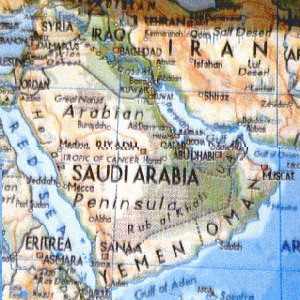Survival is the key word to understand the Saudi dynasty's latest
external and internal policies. These are designed to pre-empt change but
paradoxically they are creating more enemies in a changing world order marked
by turbulent regional geopolitics and growing internal demands for change.
The seventy-year old strategic oil for security US-Saudi alliance seemed about to crack on its 69th anniversary ahead of the summit meeting of US President Barak Obama and king Abdullah bin Abdul Aziz in March.
With the US now committed to pivoting east and possibly on track to become an oil exporter by 2017, American and Saudi policies are no longer identical.
Former US President George W. Bush's democracy campaign, which Saudi opposed, alerted its rulers to be on guard. The Arab popular protests since 2011 pushed them into leading a regional defensive counterrevolution and ever since the gap in bilateral relations has been widening.
The Saudis could not trust the US' "regime change" strategy in the region, which depends on the Muslim Brotherhood International (MBI) as an instrument of change, sponsored by a regional rival like Turkey and a co-member of the Gulf Cooperation Council (GCC), like Qatar, which has been for long contesting the Saudi leadership of the GCC, the Saudi leading role in Arab politics and the Saudi political representation of Sunni Muslims.
This trilateral alliance of Qatar, Turkey and the MBI would develop into a real threat to Saudi's survival if it was allowed to deliver change in Syria, Iraq, Egypt, Yemen, Lebanon, Tunisia, Libya and elsewhere in the region. It might quickly leave Saudi Arabia as the next target for "change."
The US pillar of Saudi security now seems to be in doubt as the United States stands unable to meet Saudi expectations on almost all the most critical issues in the Middle East, from the Arab-Israeli conflict to the Saudi-Iran conflict and the ongoing bloody conflict in Syria, let alone the conflict with the MBI, especially in Egypt.
Within this context, using the MBI as an instrument for "regime change" in the region has created a Saudi MBI phobia. Change is overdue in the kingdom, but, after decades of intensive Islamic education, change could only come camouflaged in Islamist form.
Next Page 1 | 2 | 3 | 4 | 5 | 6
(Note: You can view every article as one long page if you sign up as an Advocate Member, or higher).





